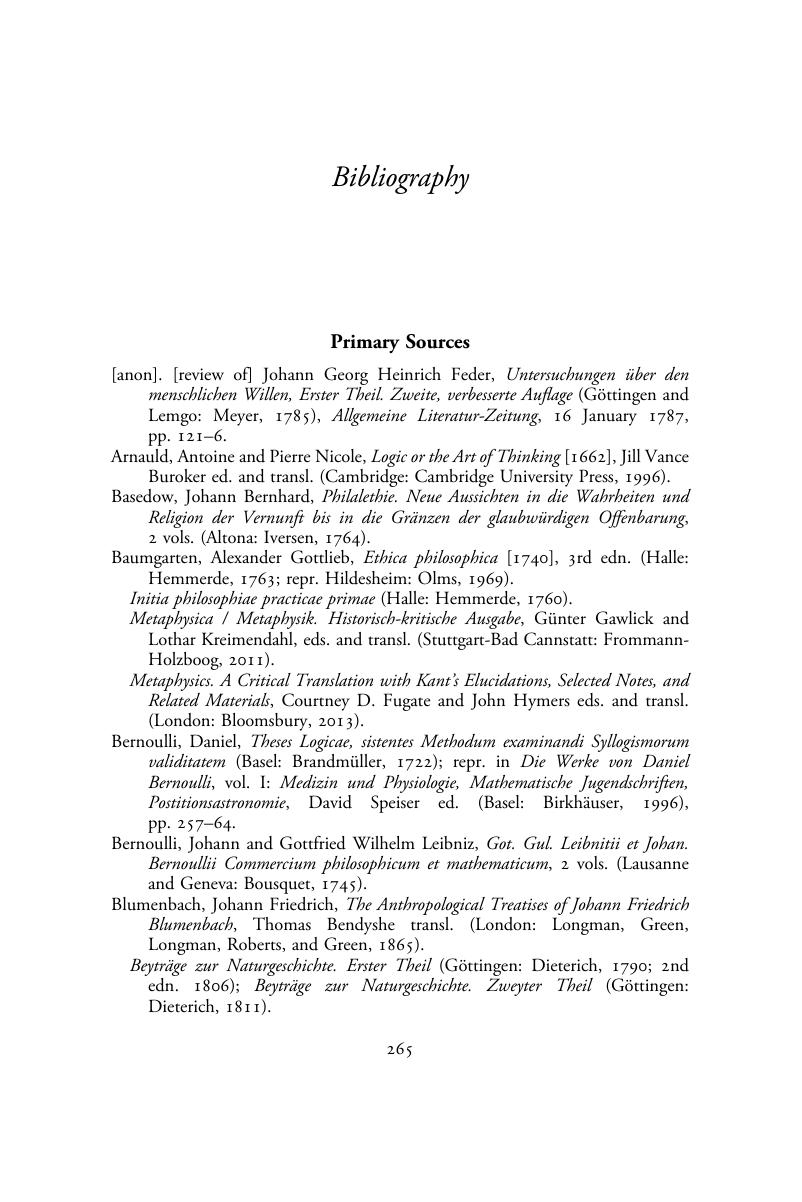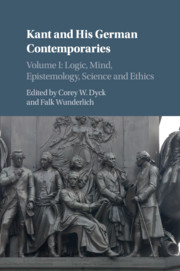Book contents
- Kant and His German Contemporaries
- Kant and His German Contemporaries
- Copyright page
- Contents
- Contributors
- Acknowledgements
- Abbreviations and Citations
- Introduction
- Part I General and Transcendental Logic
- Part II Metaphysics and the Mind
- Part III Truth, Idealism and Scepticism
- Part IV History and Philosophy of Science
- Part V Freedom, Immortality and Happiness
- Bibliography
- Index
- References
Bibliography
Published online by Cambridge University Press: 21 December 2017
- Kant and His German Contemporaries
- Kant and His German Contemporaries
- Copyright page
- Contents
- Contributors
- Acknowledgements
- Abbreviations and Citations
- Introduction
- Part I General and Transcendental Logic
- Part II Metaphysics and the Mind
- Part III Truth, Idealism and Scepticism
- Part IV History and Philosophy of Science
- Part V Freedom, Immortality and Happiness
- Bibliography
- Index
- References
Summary

- Type
- Chapter
- Information
- Kant and his German Contemporaries , pp. 265 - 289Publisher: Cambridge University PressPrint publication year: 2018



